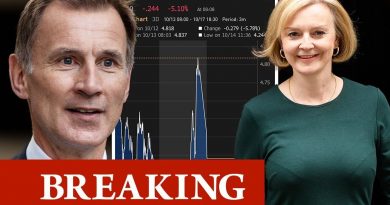Congress Grills Social Media CEOs, Slams Instagram; “Your Platforms Are My Biggest Fear As A Parent” – Update
UPDATED: Lawmakers for a key House committee united Thursday in a bipartisan attack on the nation’s three biggest social media platforms and threatened their CEOs with all kinds of oversight.
Peter Welch (D-VT) of the House Energy and Finance Committee discussed creating a public agency like the FCC or FTC with rulemaking and enforcement powers for the Internet — like “the SEC was designed to stop rampant abuse on Wall Street in the 1930s.”
A month after Sen. Amy Klobuchar introduced an antitrust bill aimed at big tech, House pols compared the giant platforms Facebook, Twitter and Google — run by Mark Zuckberg, Jack Dorsey and Sundar Pichai — to old fashioned monopolists like Standard Oil and Ma Bell. The FTC and dozens of states have filed antitrust lawsuits against Google and Facebook.
Reps bashed Facebook’s new push to build an Instagram for kids under 13, likening it to Big Tobacco fostering addiction. Facebook-owned Instagram currently requires users of the service be over 13 but Zuckerberg acknowledged that the only control was asking new signups to plug in their age. Facebook has promised parental transparency or controls with the new Instagram but committee members weren’t impressed. In a hearing that ran more than five hours, they ticked off ways they think the behemoths are damaging children, veterans, minorities, civil rights, democracy and public health, with vaccine disinformation.
“A trust deficit has been growing over past several years and… we need to do something about it now,” said Greg Pence, Republican from Indiana and brother of former VP Mike Pence, noting “the extent to which your platforms engulf our lives” and how hard it is “to participate in society today” without them. He said he thinks Twitter’s policies are selectively applied.
Texas Republican Dan Crenshaw — with the distinctive eyepatch — was more explicit, accusing Democratic members of being out to muzzle free speech and their complaints of misinformation really means “political speech that they don’t agree with with.” Republicans are concerned with illegal content, he said, while “the Democrats want to muffle free speech. Fight that “and I’ll have your back,” he told the CEOs.
Several members expressed grave distress at the impact of social media and excessive screen time on children. “Your platforms are my biggest fear as a parent,” said Washington Republican Cathy McMorris Rogers.
PREVIOUSLY: It was the first big tech hearing since the attack on the U.S. Capital Jan 6, which lawmakers took personally and sparred with Facebook chief Mark Zuckerberg, who downplayed the platform’s role in setting the stage. The CEO said big tech shouldn’t be blamed for an overheated media and political climate and polarization in the nation that existed long before social media platforms.
“We did our part to secure the integrity of our election. Then President Trump gave a speech” contesting the election results and urging people to fight, he said, referring to a rally preceding the Jan. 6 attack on the U.S. Capitol where five people died. “I believe that the former president should be responsible for his words and the people who broke the law should be responsible for their actions.”
“The country is deeply divided right now and that is not something that tech alone can fix,” he told the House Energy and Commerce Committee.
Zuckerberg is appearing with Twitter CEO Jack Dorsey and Sundar Pichai, chief executive of Google parent Alphabet.
Lawmakers berated the trio of platforms for misinformation or disinformation on politics, Covid and vaccines, and for putting profit above the public good. They raised concerns over censorship, teen depression and data privacy. The discussion was rooted in potential changes to Section 230, a decades old law that gives social media platforms sweeping legal immunity for content that’s posted. Some pols — Trump had been first in line — want to eliminate or reform it.
Zuckerberg reiterated that he supports tweaking the reg for more transparency and accountability, at least for large platforms. Pichai also appeared generally amenable. Dorsey was dubious. He said changes would be difficult and “may incentive the wrong things.” Section 230 allows platforms to moderate content and suggested advertisers won’t support platforms without that — reminding the assembled that the companies are businesses.
Lawmakers claimed the business model itself is the problem. That it incentivizes controversy to increase engagement and fuel advertising.
“They are not just mere bystanders and have failed to meaningfully change,” said Chairman Frank Pallone (D-NJ). The companies “routinely make minor changes to their policies in response to the public relations crisis of the day but the underlying problems remain.”
The companies “will not take the aggressive action they need to take” and “fines have simply become the cost of doing business.”
The execs ticked off all the fact checking they do, all the millions of posts that have been remove or tagged. Platforms can remove content completely and thoroughly when they must. An anti-sex trafficking law passed in 2018 was the first real reform to Section 230, removing legal immunity for content dealing with that, and it disappeared immediately.
The exchanges grew a bit testy as the execs declined to give ‘yes’ or ‘no’ answers to a range of questions, like whether they think their platforms play a role in spreading disinformation or inciting violence.
“This is irritating to a lot of us. No one seems to know the word yes or no,” said Re[. Anna Eshoo (D-CA).
“These are nuanced issues,” Zuckerberg said.
More coming as hearing progresses…
Read More About:
Source: Read Full Article


